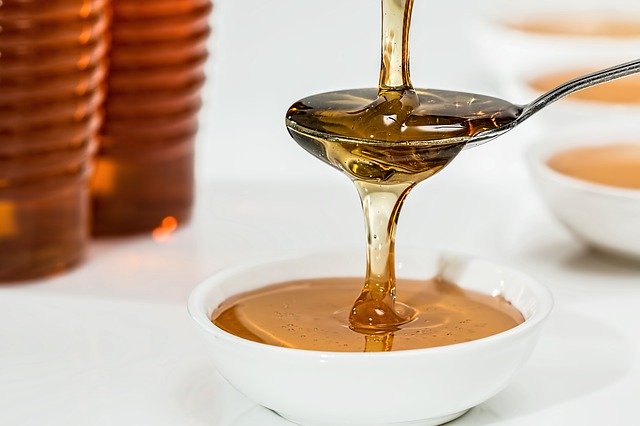Here is the war begins! Do you tend to go for honey or maple syrup more frequently? If yes, let’s begin the sugar war between these two well-liked sweeteners!
Pure honey and maple syrup are frequently promoted as natural sweeteners healthier than sugar or sugar alternatives.
Some claim that their application and reliability are comparable. The difference ranges greatly in terms of nutritional content and makeup, though.
Which will prevail ultimately in the conflict between honey vs. maple syrup?
Let’s find out!
Difference #1: Flavor Profile
Along with the woodsy maple flavor, one may anticipate that a product containing maple syrup also features caramel notes. It comes in complex flavors like vanilla, cinnamon, and even hazelnut.
Similar to how there are many grades of maple syrup based on the type of tree and its location, there are several varieties of honey depending on their source of nectar. However, you can typically anticipate a light, pure, clean, and almost flowery honey flavor.
Difference #2: Calories
Compared to maple syrup, honey has more calories. Compared to maple syrup, which has 52 calories per tablespoon, honey has 64 calories. While the difference isn’t significant when comparing tablespoons, it becomes significant when utilizing larger amounts, as in baked goods.
Due to its lower calorie and sugar content, maple syrup is a preferable option for those trying to lose weight.
Difference #3: Carbohydrates
Approximately 14 grams of carbohydrates, or 85% sugar, are present in one tablespoon of pure maple syrup, mostly sucrose, glucose, and fructose. It has a 54 glycemic index, including low and medium GI meals.
A tablespoon of honey has 17 grams of carbs, with more than 90% of those being sugar. Most sugar in honey is fructose, with very little glucose and much less sucrose. Compared to maple syrup, it has a slightly higher glycemic index (58).
In light of this, maple syrup is considerably safer to ingest when comparing the glycemic index of honey and maple syrup.
Difference #4: Cooking Abilities
When comparing maple and honey cooking techniques, the results can be comparable. Due to its heat resistance, maple is best used for sweet treats rather than cooking, including grilling. Additionally, the dough can quickly become dense and dry when honey is added to baking, which makes it better for puddings, ice creams, and gelato.
Stick to maple syrup for a flavorful topping and honey for a gooey marinade.
Difference #5: Mineral Content
Calcium, iron, magnesium, potassium, zinc, copper, and manganese in real maple syrup are substantially higher than in honey. Your body benefits greatly from these minerals since they help with immunological support, red blood cell maintenance, and cell development.
Phosphorus and selenium are found in comparable levels in both honey and maple syrup. Due to its decreased sodium content, maple syrup is excellent for low-sodium diets. Additionally, the syrup has 15 times more calcium than honey.
Difference #6: Processing/Refinement
Real maple syrup is a product that comes directly from nature and has a straightforward production procedure. A maple tree is tapped for its sap, then cooked into a concentrated syrup. All done!
Bees produce honey from pollen as a food source. Inside the honeycomb, the nectar is stored and converted into simple sugars. Simple sugar evaporates from the bee’s continuous wing fanning, becoming honey.
Difference #7: Antidiabetic Properties
The antioxidant substance (GCG), a glucitol core that contains gallotannin, is present in maple syrup. The substance inhibits -glucosidase and has antiglycation and antidiabetic effects. The polyphenolic lignans, phytohormone abscisic acid, and other derivatives found in maple syrup aid in preventing diabetes mellitus.
Since maple syrup has a lower glycemic index than sugar, it won’t result in sudden spikes in blood sugar that could alter your insulin and blood glucose levels. The greater index of honey, on the other hand, is not so helpful for your general health.
Conclusion
While the flavor profile and refinement process are remarkably similar, maple syrup’s health advantages—lower calorie intake, less sugar, and steadier energy levels—win out in this comparison.
Related Posts: